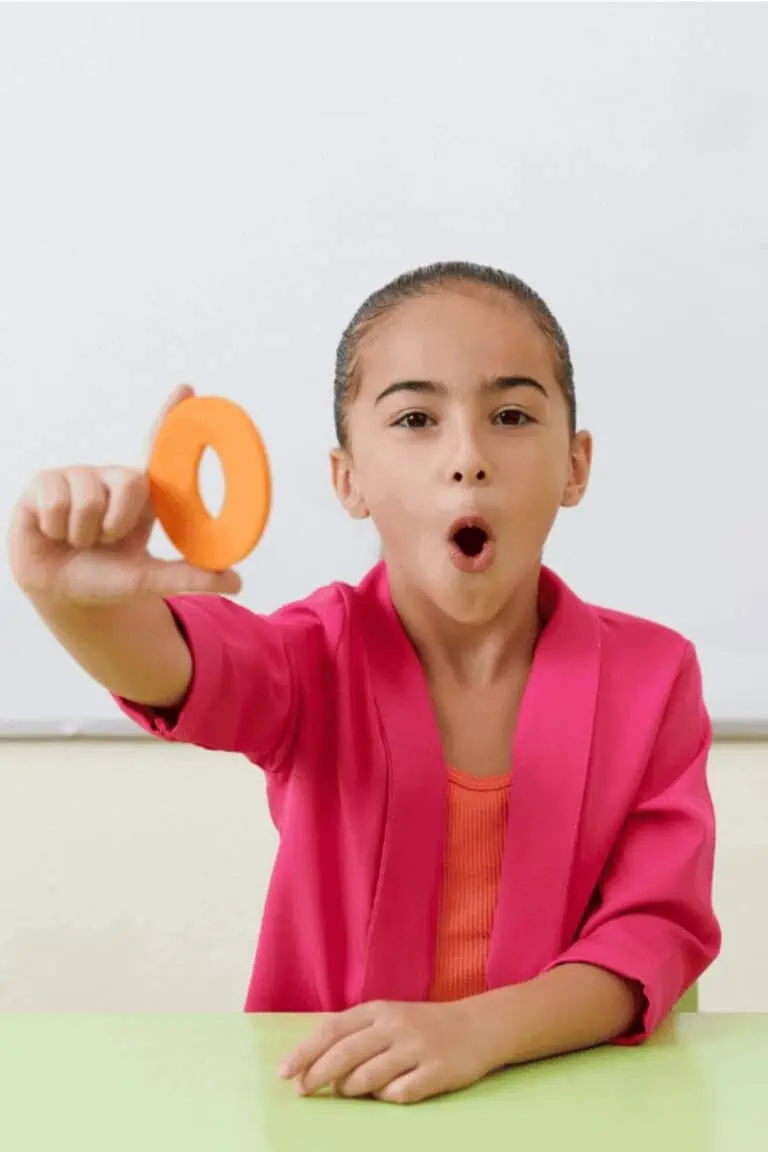Fun & Interesting Facts About Family Board Games
Published:
June 27, 2022

Contributor:
Alpha Omega Publications
Disclosure: This post may contain affiliate links, meaning if you decide to make a purchase via my links, I may earn a commission at no additional cost to you. See my disclosure for more info.
Does your family enjoy playing board games? Board games have been around for a long time! There are some interesting facts about board games that you might enjoy learning about.
Facts About Board Games
Family board games are a great way to build your kids’ brain power and also spend quality time together. Not only will your kids (and you!) be able to grow cognitive skills like critical thinking, but you can also relieve stress and laugh together. There are so many great reasons why you should include playing board games as a regular event in your home and homeschool.
Here are some fun facts about board games to share at your next family game night!
What is an interesting fact about games?
If you’re looking for interesting facts about games, you’ll love to know that board games have existed all the way back to the times of ancient civilizations. And no wonder they’ve been around that long! They combine a great mix of luck and skill.
Board games provide a great distraction and break from the pressures of life. In fact, the classic game of Scrabble was invented during the Great Depression exactly for that reason. Alfred Mosher Butts, the unemployed New Yorker who invented the game, reasoned that people would like something fun to play to take their minds off the bleak economy. He was right!
What are some good things about board games?
Family-friendly board games give you the perfect activity to do with all ages. Plus, many children’s board games require no skill at all (think: Candy Land), so they’re perfect for even young children to play.
There are so many other good things about board games such as:
- learning teamwork
- boosting your language skills
- critical thinking
- staving off boredom
- improving memory
- reducing stress
Who started board games?
The oldest board games originated in Egypt and have spread across time and cultures. As people migrated, they took these first games with them to new places.
The game of chess, for example, started in the 7th century in India. By 1066, this popular board game had found its way to Britain during the Norman Conquest. It evolved over time and the pieces that we have today are inspired by the original Indian pieces while taking on a more European flair and form. Such is the transformation of board games as they travel through time and place to the versions we play today.
What was the first board game?
The modern history of board games is quite interesting. The Game of the Goose was the first board game that was produced commercially. And you might be surprised to learn that it was gifted to Philip II of Spain between 1574-1587! The first board games of the late 18th and 19th centuries were made by mapmakers as the British Empire and other world empires were expanding.
What is the oldest game?
The oldest board game is the Royal Game of Ur, which originated in ancient Mesopotamia about 4600 years ago. The rules have even been found and translated from cuneiform tablet. You may recognize some of these other ancient games:
- Backgammon came from ancient Mesopotamia
- Chess and Pachisi originated in India
- Dice were used in early Persia
How many types of board games are there?
Depending on who you ask, there could be anywhere from about 7 to 17 types of board games. Here are a few of the most common board game types you’ll find.
Strategy Games like chess, checkers, and Blokus would fit into this first category. The main factor of strategy games is that there is no randomness involved, like a dice roll or picking up random cards to determine a play.
Area Control games like Risk require the players to try to gain more territory, moving armies and assets around the board.
Cooperative Board Games, like Pandemic, are fun team-building options to try for a family game night. Instead of working against each other, you have to pull together to be successful.
Dexterity games are based off physical skill. This category includes games like Jenga, or the Canadian game Crokinole.
Roll-and-Move games would include Clue, Monopoly, and Snakes and Ladders. All that is required is rolling the dice and moving your piece, which then requires you to make a decision based on where you land.
Where do most board games come from?
Most board games come from a few top manufacturers. Here are the most popular games and who makes them.
Hasbro is one of the top ten toy companies, and with their ownership of Parker Brothers, they produce a lot of the games that are popular today, including Trivial Pursuit, Sorry, and Monopoly. Hasbro also owns Milton Bradley, which produces The Game of Life.
Ravensburger is another top board game producer.
Benefits of Playing Games
Playing games can bring many benefits, so it’s a great activity to regularly include in your week. Did you know that playing games will even affect your brain? Read on to find out more.
What benefits do we gain by playing games?
The benefits we gain by playing games are well worth the time! Next time you gather the whole family to play a classic board game, just know that you’re not only having fun, but you’re engaging the brain. Here’s what happens when you play games.
- builds problem-solving skills
- relieves stress
- growth in logic skills
- more accurate decision-making
- attention to detail
- grows patience
How does gaming affect the brain?
Gaming affects the brain in many ways. For example, when playing trivia games, your kids are clearly learning facts but also improving their cognitive skills overall. Of course, playing any kind of board game will help improve your memory, critical thinking, strategic thinking, and problem solving skills.
Playing board games might even make you smarter. Research has shown that it keeps you more mentally sharp as you age.
Why does playing games make someone feel happy?
Playing games really does make you feel happy! This is because playing games also gives your brain a dopamine rush without the downsides. In other words, it’s a positive way to take care of your mental health.
The good news is, no matter the player skill required for the game, you can feel less stressed and more relaxed just by playing games. Plus, new games are exciting for kids of all ages!
Facts About Family Board Games
Here are some fun board game facts to share at your next family game night.
57% of American households own between 1 and 25 board games.
This fact makes sense, since North America keeps the board game industry booming. In the United States, 4.2% of families own between 51-75 games!
Monopoly was originally called “The Landlord’s Game.”
This makes a lot of sense since the whole point of the board game Monopoly is to collect real estate! This was the original name in 1902 when it was invented by Elizabeth Magie Phillips.
The longest Monopoly game lasted 70 days.
Everyone knows that a game of Monopoly can go on forever, but how would you like to play for more than two months? A typical game lasts 60-90 minutes.
$15,140 worth of Monopoly money is included with each game board.
While this number might seem high, there have been 5,120,000,000 little green houses manufactured for this real-estate board game since 1935.
Monopoly Games were smuggled to POW’s during WWII with escape kits.
This is strange but true! Parker Brothers’ English subsidiary figured out how to hide instructions, money, maps, and escape plans in Monopoly games that the Red Cross was giving to Allied Prisoners of War. It’s unknown how many soldiers were able to escape because of these rigged Monopoly games.
The tallest Jenga tower was 40 complete stories.
This record was made in 1985 when Robert Grebler made it part way into the 41st story. And you may be surprised to know that Jenga was invented in the 1970s in Ghana and didn’t make it to the United States until 1986.
The name Jenga comes from “to build” in Swahili.
The modern version of the game includes 54 blocks and takes a lot of patience and skill to build without collapsing. This game originated in Ghana in the 1970s.
If you enjoy games, you might like these posts:
- Printable Board Games
- Printable Bingo Games
- The Best Multiplication Games for Times Tables Practice
- Fun Family-Friendly Life Sized Board Games
- Fun & Easy Money Games for Kids
- Looking for a Geography Board Game? Here’s a list of the best ones.
- Learn how to play marbles with these printable instructions and game board.
- Pictionary is fun! Grab some Pictionary ideas for kids.
Word Games & Puzzles
- Looking for Sudoku printables? Download some free ones.
- Printable Word Searches
- Free Printable Crosswords
- Printable Logic Puzzles for Kids
In Conclusion
Playing board games is a must for families. Not only will you build cooperative skills and teamwork, but you will be helping your children’s cognitive development. Plus, board games are just plain fun.
They’re the perfect activity to play on rainy days or during Christmas holidays. They’re fun whether you’re playing a 2-player game or with a group of people. Your family can make memories with nothing more than a classic board game and some time together.
Sources
- https://www.aop.com/blog/15-fun-facts-about-monopoly
- https://justfunfacts.com/interesting-facts-about-board-games/
- https://www.interaction-design.org/literature/article/a-brief-history-of-games
- https://theboardgameguide.com/types-of-board-games/
- https://www.gameology.com.au/blogs/news/types-of-board-games-explained
- https://blog.technavio.org/blog/top-board-game-manufacturers-worldwide
- https://www.sciencedaily.com/releases/2019/11/191126140413.htm
- https://monopoly.fandom.com/wiki/Fun_Facts
- https://printninja.com/board-game-industry-statistics/
- https://www.jenga.com/about.php
- https://www.english-heritage.org.uk/learn/histories/board-games/
- https://www.buzzfeed.com/jamesgrebey/mind-boggling-facts-about-board-games
- https://www.snopes.com/fact-check/monopoly-games-escape-kits/












